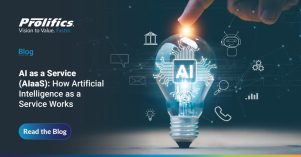By Ronald Zurawski, Data Governance Strategist and Solution Architect
In the world of artificial intelligence (AI), the ethical implications of bias in models have gained prominence. This issue demands close attention from organizations and data governance professionals alike.
As data governance consultants, it’s vital to guide businesses on how to handle bias in AI models responsibly. This article explores the role of data governance in identifying, mitigating, and preventing bias to ensure AI systems deliver fair outcomes.
Understanding Bias in AI Models
Bias in AI models can arise from many sources — biased training data, algorithm design, or even deployment context. Recognizing bias as an ongoing challenge, data governance helps establish frameworks to oversee the AI lifecycle from data collection to deployment.
A strong data governance strategy should emphasize:
- Transparency
- Accountability
- Ethical considerations
These principles form the foundation for fair and trustworthy AI practices.
Mitigating Bias Through Robust Data Governance
Data governance must take proactive steps to reduce bias in AI models. This includes:
- Applying strict data quality controls
- Ensuring diverse and representative training datasets
- Encouraging collaboration between data scientists and domain experts
Governance frameworks should also include continuous monitoring to detect and correct bias as models evolve.
Implementing Ethical AI Principles
Data governance professionals should promote ethical AI principles within all organizational practices. This involves:
- Setting clear guidelines for responsible AI use
- Encouraging diversity in data and development teams
- Maintaining detailed documentation to ensure transparency
When organizations align governance with ethics, they build trust and show their commitment to fairness and inclusivity.
Conclusion
In the evolving AI landscape, data governance is essential to address bias and guide responsible AI use. By fostering a culture of transparency, accountability, and ethics, organizations can create AI systems that are not only powerful but also fair and reliable.
My Perspective
Does this sound familiar? Have you read something similar before? It’s a solid article — but let’s look deeper into a few areas.
“Data governance plays a crucial role in establishing frameworks…”
That’s true — but how, exactly? Let’s skip the usual “it depends” and think practically.
As data governance professionals, we need to build a basic structure. Questions to consider:
- What do current regulatory requirements say?
- Can we participate early enough in the development process to guide documentation?
- What specific items must be ready for audit reviews?
By staying aware of evolving regulations, we can provide value while balancing compliance and cost.
“Bias in AI models can arise from various sources…”
Does bias come from data, or from how humans interpret results?
AI models respond to the training data they receive. From a data quality standpoint, we can add value by treating training datasets like critical data elements (CDEs).
Working with subject matter experts (SMEs), governance teams can review data profiles and assess where bias may appear.
“Data governance should prioritize proactive measures to mitigate bias in AI models.”
How might that work? This area offers new opportunities for data governance specialists.
In the past, we often relied on SMEs to interpret profiling results. But now, governance teams can take a more active role — defining standards for what constitutes bias, documenting them, and applying those standards to training data.
By doing so, governance shifts from passive support to strategic leadership.
Final Thoughts
I’ll explore this topic further in upcoming posts, but for now, consider these questions carefully.




